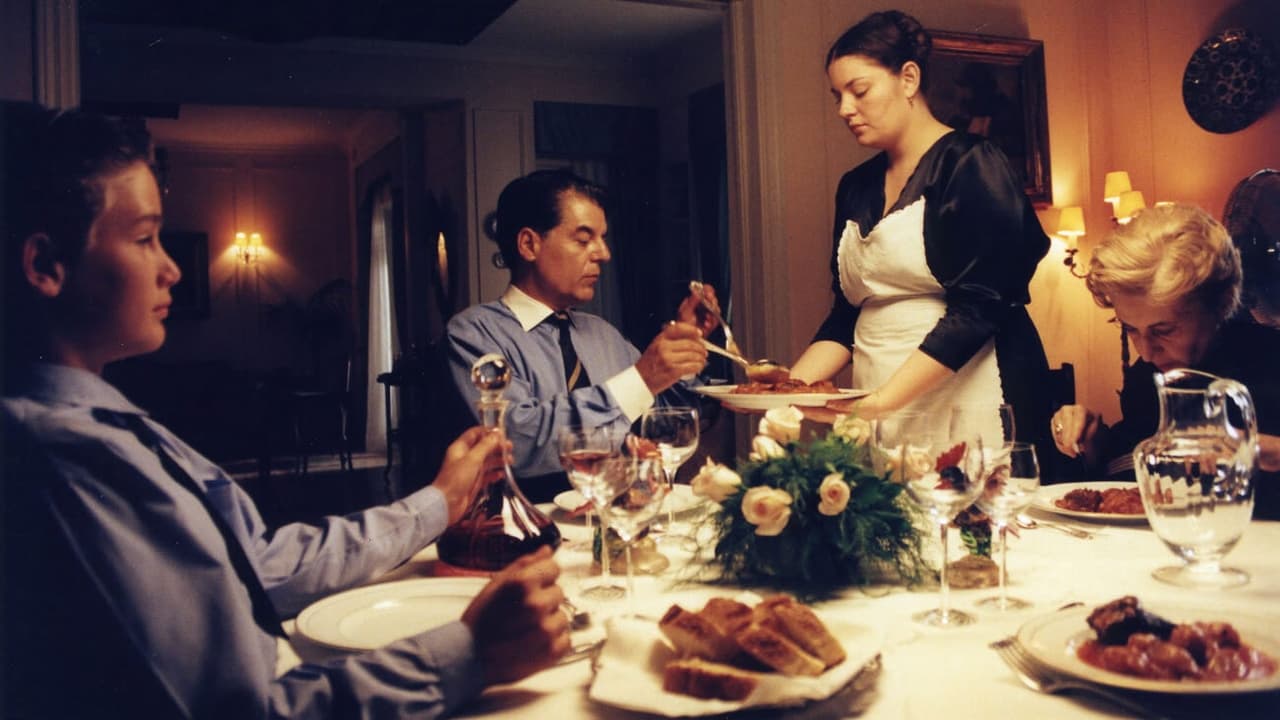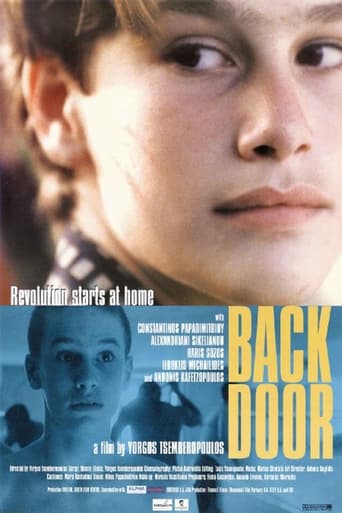

Having read other reviews on this film i find myself in disagreement with much of what has been said so far about it. Most people have missed the point of this film and misinterpreted it as a film about how a boy looks at situations and the dictatorship. Well... it simply isn't about that. We are not meant to see things as young Kemeras does, because, most importantly, he is not a child-spectator of things that he does not yet understand. He is quite mature for his age and his perception is almost infallible! He hangs out with an older boy, he thinks about sex before his classmate does, he experiments with sex long before we begin to understand that he is not by any means a "baby". The passing of his father, it seems, has nudged him out of the juvenile attitude that characterizes most boys of his age and propelled him into puberty before he was due. The film often cuts to the future where our protagonist is shown in a dictatorial military prison (where usually the shameful dictatorship would send 'communists'). I insist that the cuts are not there to 'make you keep watching'. They are used (skilfully in my opinion) by the director to show the suffering of a generation of people at the time of the Junta. They are there to contrast the period of uncertainty which preceded the military coup and the establishment of the junta which is again reflected in the state of young Kemeras. The uncertainty in life after he had lost his role-model father, the notion that his uncle might be homosexual, the constant worry that he might have an STD, the idolisation of sex, the rejection by his 'sweetheart' and the wavering of his family's political persuasion through his stepfather. The performances are fine with veteran Greek actors supporting the young cast. I found the dialogue to be slightly anachronistic at times (i'm not sure whether certain phraseology was used back in the 60's and 70's) and that some of it comes out forced and overly rehearsed. Overall the film is well shot and cut and at the end of the day the politics of it are important as ideologies often shine through people, whether we like it or not. Recommended.
... View MoreThis film starts out by being about one thing, (a young boy growing up without a father, his burgeoning sexuality and friendships), and ends up something else entirely, (a picture of Greece at the time of the dictatorship). It ought to be more interesting than it actually is. It's about youthful revolutionary fervor but it has no revolutionary fervor of its own. It would have been a better film if it had ditched the politics altogether and concentrated instead on the life-lessons of the central character, a boy from a well-heeled family of developers whose father has died suddenly. Konstandinos Papadimitriou sleepwalks his way through the part; his character isn't allowed to develop and you lose interest in him. If the film had been about his older, worldly-wise friend played by Andreas Kontopolous it probably would have been better.The film dawdles along without any sense of urgency. It's meant to be a child's eye view of the world and in particular of the political situation in Greece at the time but it's like a paint-by-numbers version of "Z". It keeps flashing forward to what appears to be the boy's detention but that feels like a gimmick to keep us watching to the end. We know from the start what is going to happen so we need something a lot more forceful than what the director gives us to sustain our interest. It's well-intentioned but a bit on the dull side.
... View MoreGreece is a country with many wonderful directors. That is why Greece produced so many good "director's films". The thing that Greece doesn't have is good screenwriters. "I Piso Porta" is not a "director's film". Is a film with a good scenario. For those who have been previously interested in the Greek film, "I Piso Porta" made a major breakthrough on this point. Yiorgos Tsemberopoulos showed us how to make a good coming-of-age film, the Greek way. For those who wish to see it in cinemas around the world an advice: Read a thing or two about the Greek political situation back in the '60s. It will help you to appreciate the film. For the Greeks "I Piso Porta" was a long awaited film. We welcome it.
... View More